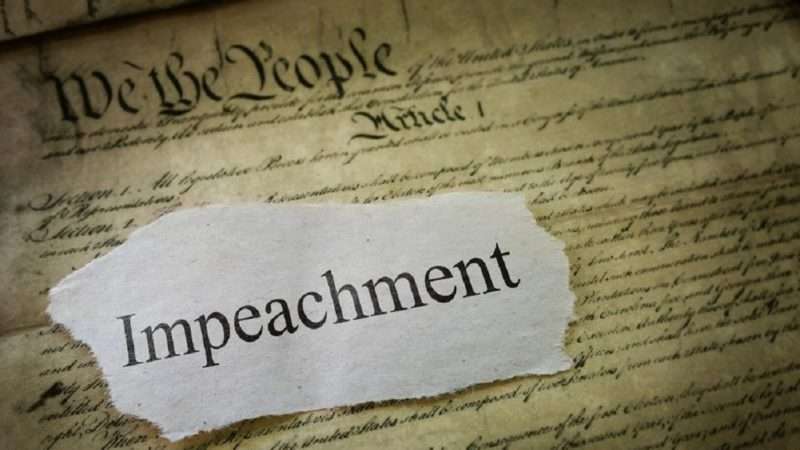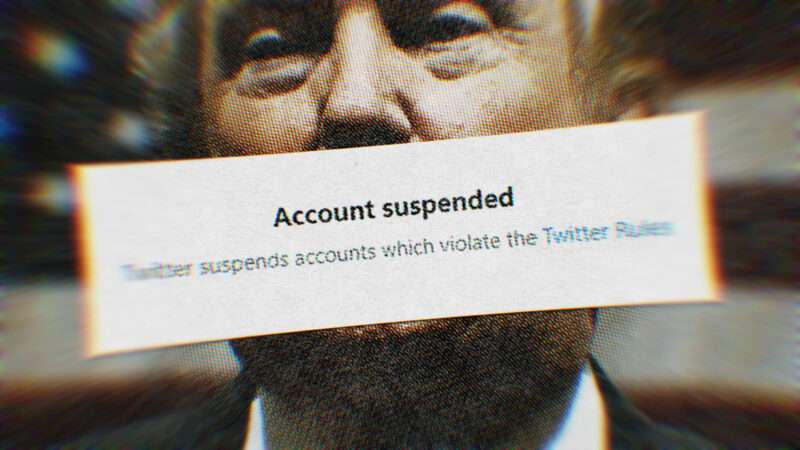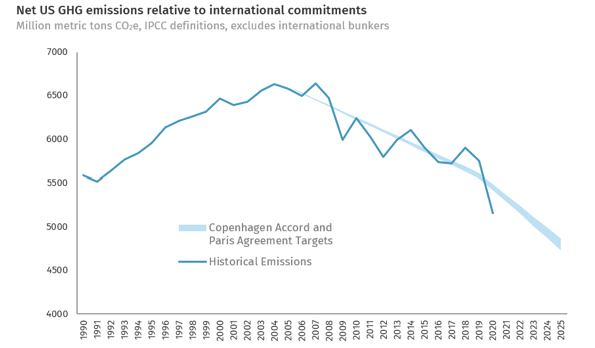President Donald Trump’s response to last week’s attack on the U.S. Capitol led Twitter to permanently ban him from its platform, and Facebook and YouTube closed his accounts on the grounds that he had used their platforms to incite violence.
Then Apple and Google banned Twitter competitor Parler from its app stores, on the grounds that the perpetrators of last week’s Capitol riot used it to coordinate the attack and because the service lacked adequate content moderation. Next, Amazon, which owns about a third of the global cloud storage market, evicted Parler from its cloud hosting service, causing the site to go down entirely.
These decisions drew a ferocious reaction, both for and against, from people of all political stripes.
“For better or worse,” as Edward Snowden said after Trump was kicked off Twitter, “this will be remembered as a turning point in the battle for control over digital speech.”
“It is stunning to watch now as every War on Terror rhetorical tactic to justify civil liberties erosions is now being invoked in the name of combatting Trumpism,” wrote journalist Glenn Greenwald.
So how should those who value a free and open society feel about the deplatforming of the commander in chief, the ongoing purge of many of his supporters, and repression of discussion of 2020 election voter fraud claims?
Twitter is a private company and CEO Jack Dorsey’s capacity to evict even the president of the United States is something to be grateful for. But what if the network power of a handful of Silicon Valley giants is so great that there’s nowhere for the evicted to turn? And are Facebook, Twitter, and Google acting independently, or are they bending to the will of Congress at a time when tech has become so deeply politicized?
The takeaway from the great deplatforming of 2021 is that we need an open digital commons more than ever, a place where individuals maintain ownership of their own identities and where speech is highly resistant to political pressure.
Decentralized networks are vital to protecting open discourse not only from Twitter, Facebook, and Google, but from Sen. Ted Cruz (R–Texas), Sen. Josh Hawley (R–Mo.), President-elect Joe Biden, and Vice President-elect Kamala Harris, who have the real power to stomp on the free speech rights of American citizens.
It’s easy to forget that Twitter’s Jack Dorsey and Facebook’s Mark Zuckerberg embraced the concept of a neutral “public square” not long ago. Zuckerberg told Congress in July 2020, “We do not want to become the arbiters of truth.”
But the shift from digital commons to an actively curated news feed was underway long before the election. In October 2020, Facebook suppressed and Twitter blocked the sharing of a New York Post story claiming that Biden met with an executive at a Ukrainian gas company where his son held a board seat.
Twitter also blocked the New York Post from using its account for more than two weeks.
When New York Times contributing opinion writer Kara Swisher grilled Parler CEO, John Matze, about the platform’s role in inciting the Capitol breach, he defended Parler’s hands-off approach:
Swisher: …going into the Capitol building to do this, if it was organized on your site, what should happen on your site?
Matze: Look, if it was illegally organized and against the law and what they were doing, they would have gotten it taken down. But I don’t feel responsible for any of this and neither should the platform, considering we’re a neutral town square that just adheres to the law.
The handful of companies that own the dominant share of social media and the underlying infrastructure of the internet disagree, and they’ve made it increasingly difficult for Parler to operate.
But the greatest threat isn’t coming from Silicon Valley.
To get what they want from tech CEOs, both Republicans and Democrats have regularly threatened to strip away the liability protections provided by Section 230 of the Communications Decency Act, which is sometimes known as the internet’s “First Amendment.“
Democrats want to leverage Section 230 to force them to weed out misinformation, which they falsely imagine can be sorted out by panels of accredited experts or fine-tuned algorithms. Republicans have threatened to repeal Section 230 unless platforms commit to “viewpoint neutrality,” a standard that Daphne Keller of Stanford’s Cyber Policy Center told Reason in June 2019, is impossible to uphold.
“I don’t even know what being neutral would mean,” said Keller. “Would it mean allowing every single thing to be uploaded and just showing it in chronological order? Can you be neutral if you have search features? Can you be neutral if you allow people to mute things? I think a truly neutral—meaning showing everything that is legal—social media platform would be full of content that most users don’t want to see.”
The incoming Biden administration and Congress have signaled their intention to introduce new national security and speech laws. Biden is making a public push for a new domestic terrorism law and red-flag laws, which would make it easier for federal agents to seize firearms based on users’ online posts.
“[P]erhaps [America’s] way of thinking about free speech is not the best way,” wrote Emily Bazelon in The New York Times Magazine in October 2020. “At the very least, we should understand that it isn’t the only way.”
She further argues that European speech regulations “have created better conditions for their citizenry to sort what’s true from what’s not and to make informed decisions about what they want their societies to be.”
But, in the European Union, these regulations have created the unintended consequence of flagging content that’s disturbing yet vital to the public interest, such as an archive of Syrian war crimes wrongly flagged as “terrorist content” under the E.U. guidelines.
“Right now we don’t have any clear information telling us that taking down all of these videos really is making us safer,” says Keller of the E.U. regulations. “In fact, a lot of people who are expert researchers on security are concerned that this will effectively drive more people into darker corners of the internet, into echo chambers where they only ever hear from people who agree with a violent agenda.”
A study from psychologist Richard Rogers found that a robust network of deplatformed figures has already emerged over the past several years on encrypted apps like Telegram, which has become a refuge for extremist content but which is also a preferred platform of pro-democracy activists in Hong Kong trying to avoid Chinese censorship and surveillance.
A transition to a new, more decentralized and private web may be accelerating as privacy-centric DuckDuckGo has experienced significant growth in search as an alternative to Google, and the encrypted messaging app Signal saw a big bump after Elon Musk encouraged the masses to install it.
With a crackdown in progress and likely to intensify once the new administration settles in, we should focus instead on enhancing encrypted communication platforms that make online speech harder to control, and resisting law enforcement efforts to weaken vital tools like end-to-end encryption.
There’s a lot that still needs building to create an alternative digital commons, but it can be accomplished. Communicating freely might take more work in the future, and your favorite politician might get banned or your favorite app taken out of the store. But in this cat-and-mouse game, the mice far outnumber the cats.
That said, in the short term, the decision makers at Twitter and Facebook may want to consider that repression tends to have the unfortunate effect of pushing legitimate dissidents and dangerous, unsavory extremists into the same channels.
Sigmund Freud theorized that when thoughts or experiences are repressed, they inevitably resurface in more deranged and damaging forms. When our dominant communication platforms seek to repress widely held beliefs and opinions, those beliefs and opinions aren’t likely to simply disappear but rather reemerge elsewhere in less visible forums where they’ll face less scrutiny.
The next few years may be ugly, but silencing dissenters will ultimately fail. As Stewart Brand famously quipped, “Information wants to be free.”
Produced by Zach Weissmueller. Graphics by Lex Villena. Riot footage by Ford Fischer.
Music credits: ANBR licensed through Artlist.
Photo credits: ID 174062831© Mirko Vitali Dreamstime.com, Gage Skidmore, Maurizio Pesce, Mark Warner, ID. 68071331© Joe Sohm Dreamstime.com, ID 66213669© Joe Sohm Dreamstime.com, Mandel Ngan Pool via CNP Newscom, POOL REUTERS Newscom, David Seelig Polaris Newscom

from Latest – Reason.com https://ift.tt/3sk5Aji
via IFTTT






